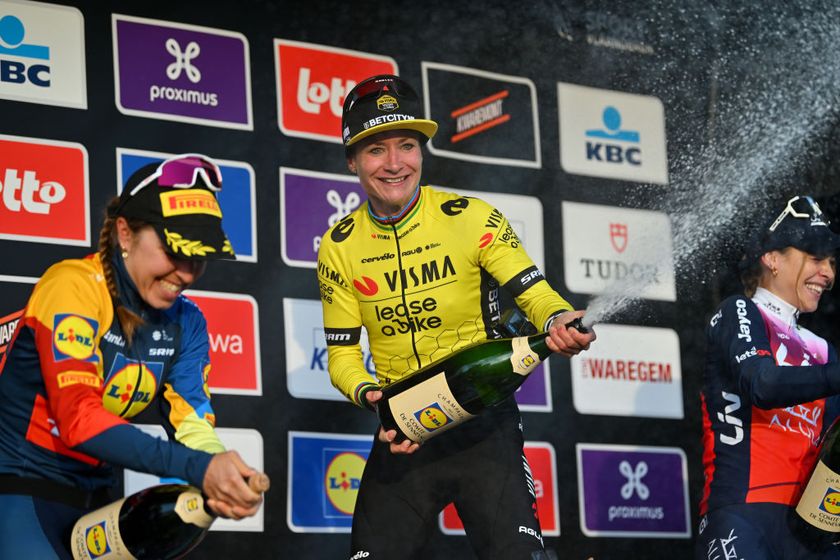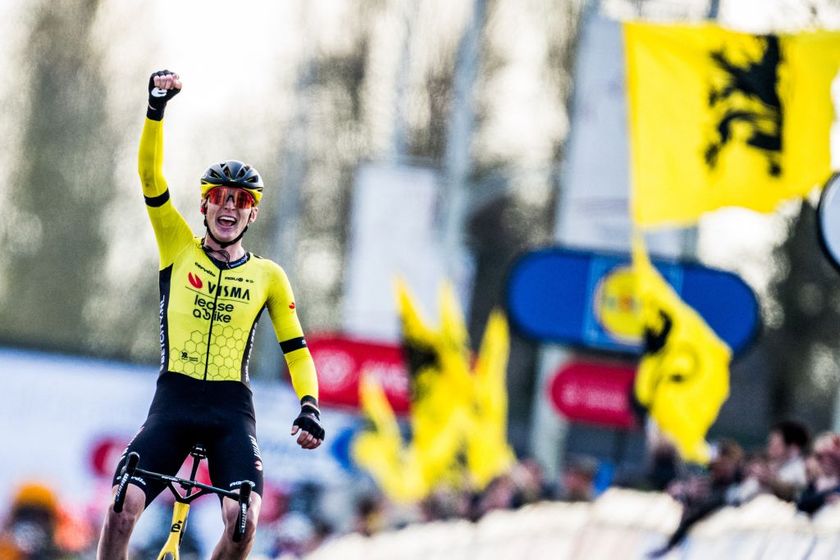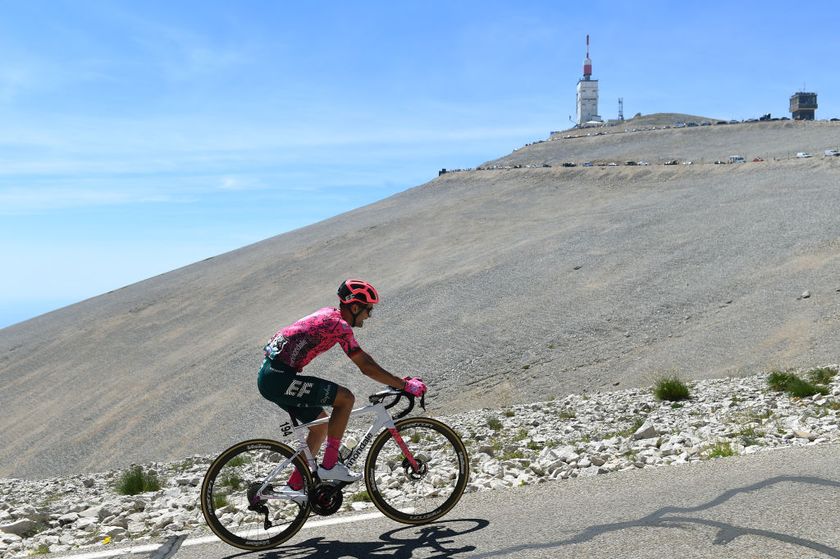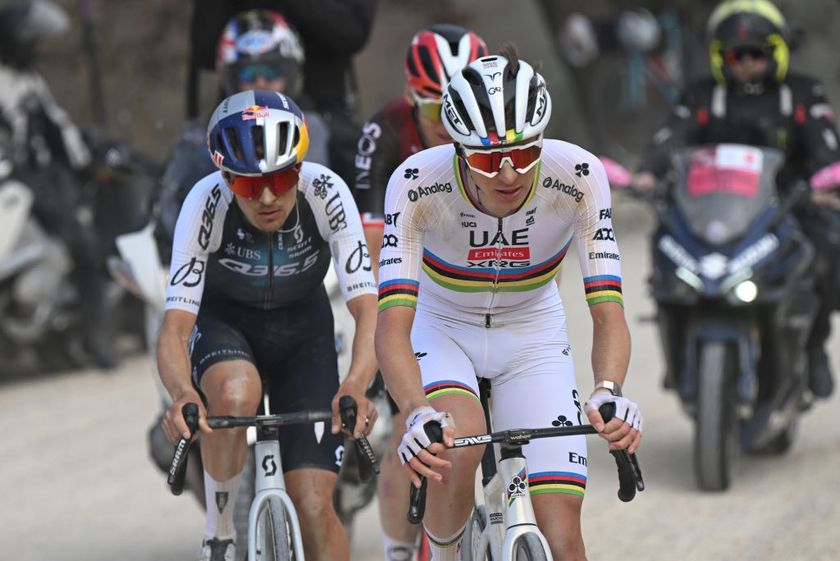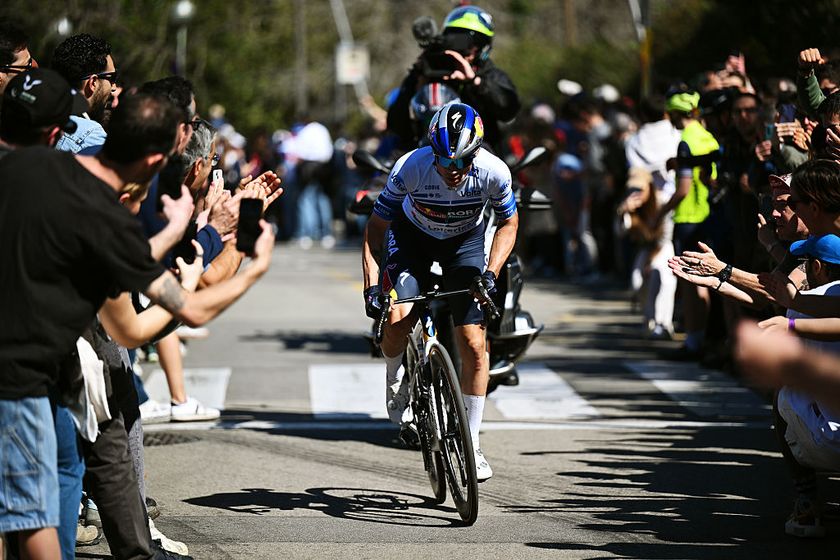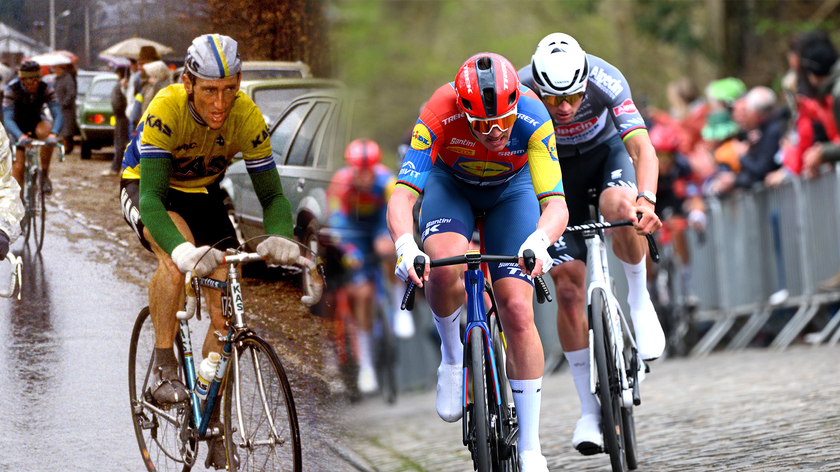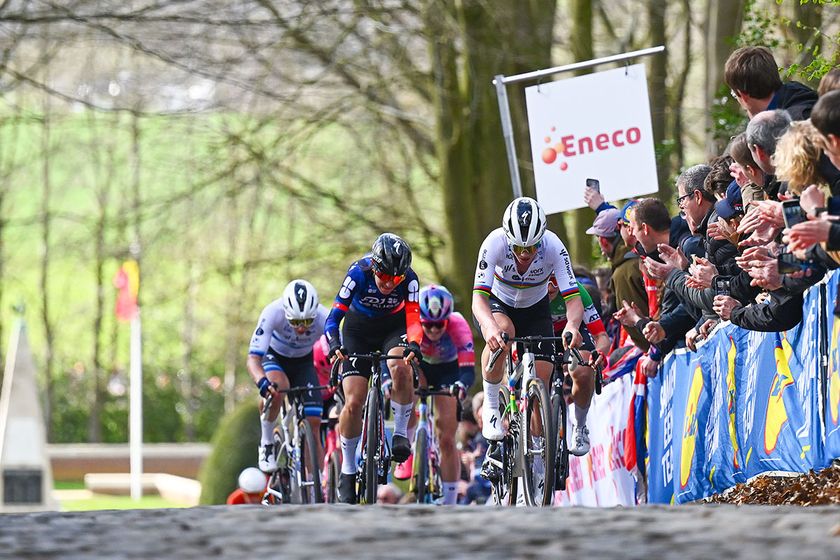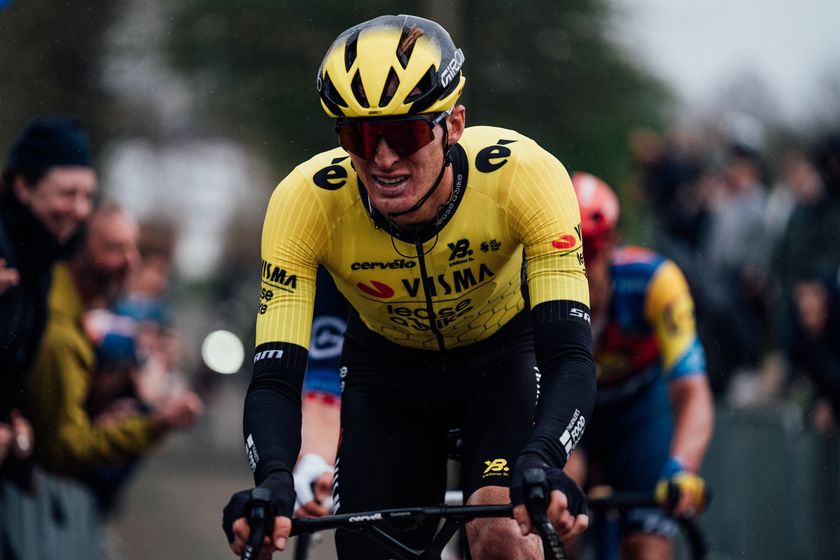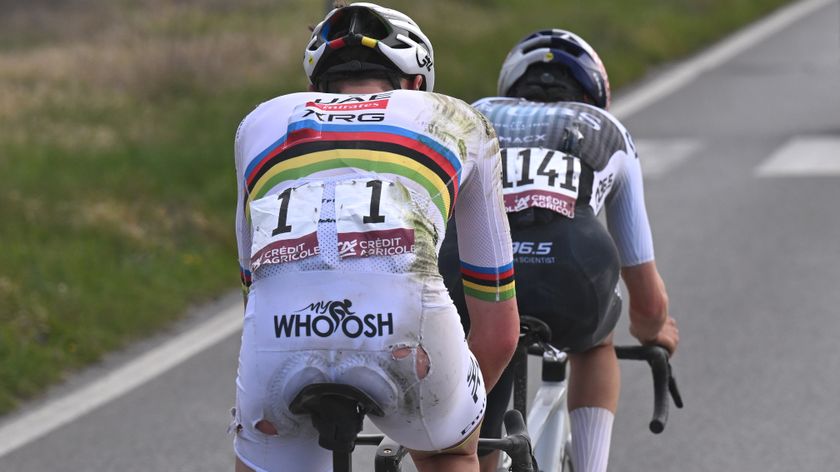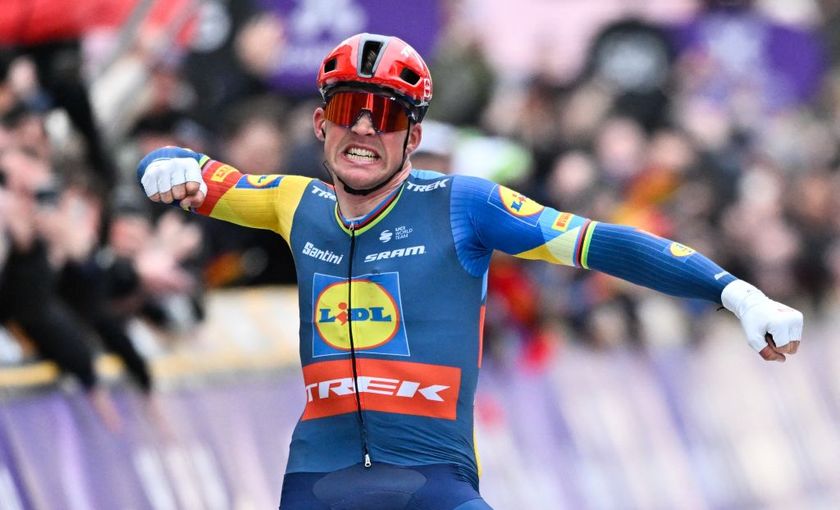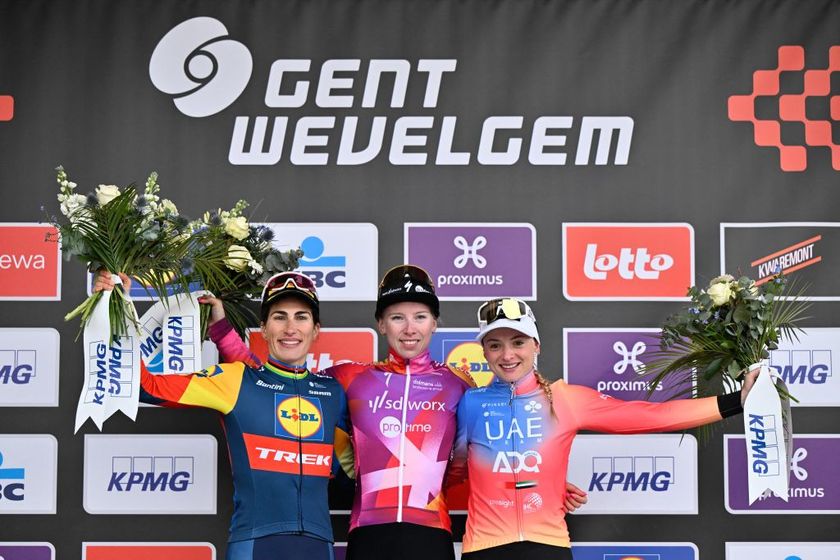Tour de France stage 19: How the green jersey competition influenced the race
Fast racing, breakaways shut down 'quiet' Tour stage as the green jersey battle rolled on
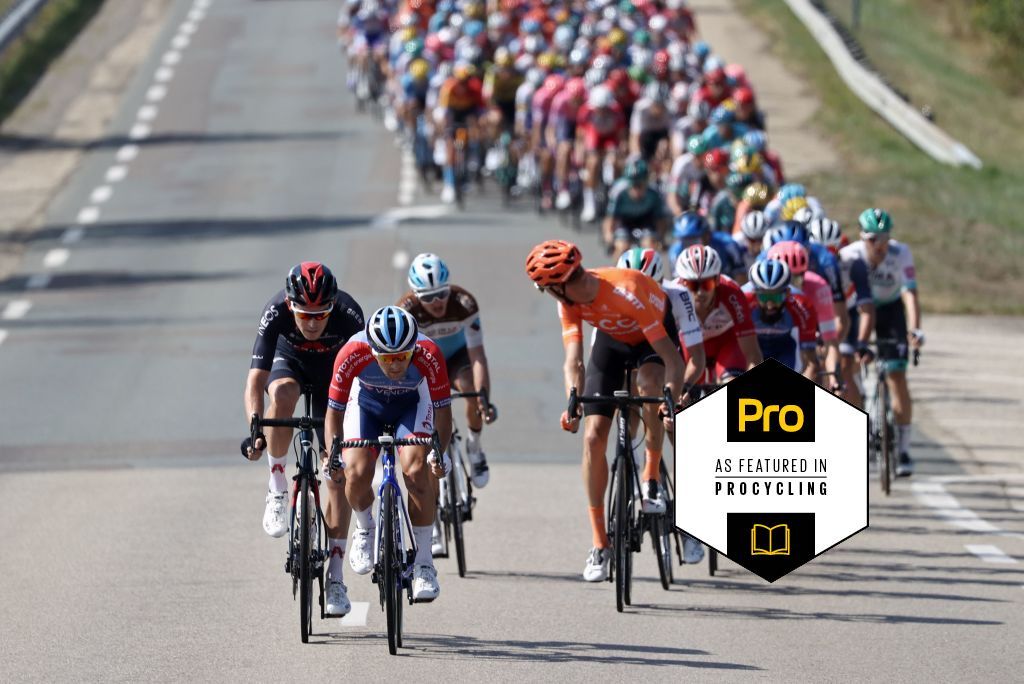
Stage 19 of the Tour de France has concluded. Forty-eight hours before the peloton reaches Paris. The end is very much in sight but for all the relief and happiness that comes with the conclusion of a Grand Tour, so too is the incoming Tour autopsy, particularly for the teams that haven’t achieved what they wanted.
The last road stage before the Champs-Élysées, featuring 166.5 kilometres of rolling roads between Bourg-en-Bresse and Champagnole, provided the last roll of the dice, the last-chance saloon for 12 of the 22 teams in the race who have yet to win a stage.
The day was tentatively marked as one for sprinters, but the undulating terrain, complete with 2,000 metres of climbing, also provided decent terrain for an ambush, if there was the motive for one to go. And considering how many teams would have wanted to change their Tour fate, with only a time trial to come on stage 20, that should have been motivation enough. Except, when the racing really got going, the only rider who managed to get away up the road was Remi Cavagna of Deceuninck-QuickStep, a team two stage wins to the good, who held the yellow jersey in week one and comfortably led the green jersey competition.
That’s not to say other riders didn’t try and force a breakaway. NTT Pro Cycling’s Max Walscheid and CCC Team’s Michael Schär attacked early, but got nowhere. Ineos Grenadiers’ Michał Kwiatkowski (stage winner the day before) and teammate Dylan van Baarle both had a go, and so did Guillaume Martin (Cofidis), Cyril Barthe (Vital Concept-B&B Hotels) and Geoffrey Soupe (Total Direct Energie). All of them, apart from Ineos, were riders from teams that sit empty-handed. But no one other than Cavagna got away. Within a few kilometres, Bora-Hansgrohe flooded the front of the peloton and shut down any moves.
Since Sam Bennett solidified his lead position in the green jersey competition after stage 11, Peter Sagan and his Bora-Hansgrohe team have done everything they can to take it back off his shoulders, to the point it’s often influenced the way the Tour has been raced for the last two weeks.
Stage 19 might have been the last chance for 12 teams to get a vital stage victory, but for Bora it was their last attempt to get green back - Bennett held a 52-point lead going into the day, the kind of lead that could only be snuffed out if Sagan were to win in Champagnole. On paper, the undulating terrain and the fact the day came after three hard stages in the Alps should have made it perfect for a breakaway. But Bora wasn't having that.
Chasing is new territory for Sagan when it comes to the green jersey competition. He’s usually so far ahead that simply staying upright and making it to Paris are the biggest worries he has to overcome by week three of the Tour. But the more Bennett swept up a couple more points here and there in intermediate sprints, the more Bora tightened their grip on controlling the race to try and prevent it happening again. No day is entirely quiet at the Tour, but the constant back and forth between Bennett and Sagan meant every moment felt completely hard fought.
Get The Leadout Newsletter
The latest race content, interviews, features, reviews and expert buying guides, direct to your inbox!
Stage 12 was a perfect day for a long-range breakaway. Featuring four categorised climbs through the Massif Central and a lumpy finish to Sarran, another year would have seen a group go clear early, left to their devices to challenge for the win among themselves. The peloton, complete with GC riders and sprinters, would have been content to save their legs for another day.
But this was the morning after the decisive day that saw Sagan relegated from the sprint, and suddenly 64 points in arrears to Bennett. Instead, Bora kept the pace so high the first four riders to get away were never given much more than a minute. Even when the intermediate sprint was done, Bora continued to push on in an effort to distance Bennett and put Sagan in contention for the victory (he finished 13th).
Two days later, on stage 14 to Lyon, was another day that would have been designated as one for a breakaway, but Bora stepped in. With the intermediate sprint coming just after a category 4 climb, the German team piled numbers to the front to distance Bennett (which they did, just) and also tried to set up Sagan for the stage win (he finished fourth). The result made the stage the third fastest of the entire Tour, raced at an average speed of 43.41km/hour.
“Every day we’re racing,” yellow jersey leader Primož Roglič said at the finish in Lyon. “I thought after yesterday we’d have an easier day but it was really hard racing again.”
Even stage 17, a bona-fide GC day and the queen stage ending in Méribel on the Col de la Loze, saw a fairly flat opening 88 kilometres raced frantically as Sagan tried to jump into a breakaway to pick up the intermediate points. Deceuninck-QuickStep and Bennett tried to stop him. Tired legs, from the sheer fact of it being week three of the Tour de France, were being worked that little bit extra when they probably would rather not be.
So, back to stage 19. A day that should have seen the majority of teams fighting to get away resulted in a lone attacker. Bora and Sagan neutralised all other major moves, until the race-winning break eventually went with 30km to go. And, of course, the 12-rider group contained none other than Sagan and Bennett marking each other out.
Sophie Hurcom is Procycling magazine’s deputy editor
If you like what you read, why not subscribe to Procycling magazine? As part of our autumn sale, a subscription currently starts at just £5 for the first five issues - that’s only £1 per issue. Procycling magazine, the best writing and photography from inside the world’s toughest sport.
Sophie Hurcom is Procycling’s deputy editor. She joined the magazine in 2017, after working at Cycling Weekly where she started on work experience before becoming a sub editor, and then news and features writer. Prior to that, she graduated from City University London with a Masters degree in magazine journalism. Sophie has since reported from races all over the world, including multiple Tours de France, where she was thrown in at the deep end by making her race debut in 2014 on the stage that Chris Froome crashed out on the Roubaix cobbles.
